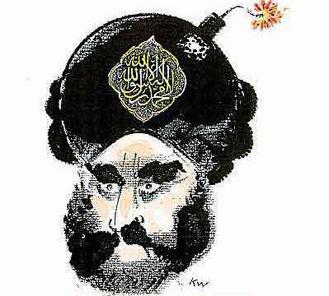A guest post by Ivan.
——————————————————————–
We have quite a few intelligent people in our TPD community, and we have some intellectuals, and sometimes, but not always, they overlap. Are the two always identical? Let’s think about this.
The word “intellectual” was not used as a noun in the English language until late in the 19th century. As late as the the mid-Victorian age, “intellectual” was used only as an adjective, but not as a category of person. It used to refer simply to a tendency to think contemplatively, but it was not used to describe any particular class of people until around the 1880s, the time when the Russians coined the word “intelligentsia,” which was later transliterated into English, as was the very new Russian concept of intellectuals” as a particular class of people.
The very word “intelligentsia” is Russian. The letters “ts” near the end, are transliterations of a Russian letter, “tse”, followed by the Russian suffix “ia” for the category.
And the very concept of an entire social category of people being peculiarly devoted to matters of the “intellect”, originated in Russia in the late 19th century. It is a concept which is essentially concerned with social prestige based on belonging to a
community of shared opinions. And this is something entirely different from what the status of “scholars” used to be. The Russian concept of “intelligentsia”, was based not so much on having scholarly interests, as it was based on having a special (socially advantageous) identity based on sharing a culture of opinion.
The word, and the concept, of “intelligentsia” were imported to America in the late 19th century, mostly by immigrants from Russia. The word and the concept have spread throughout Europe since that time, partly (but not entirely) through the later influence of American academia on Europe. Again, this is not to be confused with other, earlier European concepts of thinkers. The peculiar quality of the Russian (and now American) concept of “the intellectual class”, is its essential aspiration toward social advancement and respectability, and even popularity, AND, perhaps most of all, the aspiration of the “Intelligentsia” to be a specialised class who are equipped, and most of all empowered, to guide the body politic, and the masses. The Russian “intelligentsia”, like those of later America and even later Europe, were a very Populist class of people
whose main aspiration was to be a specialised elite who were authorised to rule the masses. (Lenin was THE Quintessential man of the “Intelligentsia”, but now their name is Legion, both on the nominal “Left” and the “Right”, throughout Europe and America. Neo-conservatives like (the late) Leo Strauss, and titular “liberal” scholars like Noam Chomsky, BOTH come from the legacy of this rather NEW concept of “intelligentsia.” The “intellectuals” of both the Right and the Left in America – and in much of Europe as well – stem from the same Russian roots of Lenin’s time, when the “intelligentsia” aspired to be a new Priesthood of the masses.
Now, I did not write the following lines – and for personal reasons I do not want to give the name of the man who did. (But I do have his permission to quote from his book, here.) On this topic, he wrote:
The modern historian should never – a strong word, this – treat ideas categorically, since such a treatment, with its implicit exaggeration of the directness of the function of certain ideas, will only lead to their divorce from reality in retrospect – which is, too, why too much importance should NOT be attributed to the history of the intelligentsia.
And the same author also wrote, of the American comedian, Groucho Marx, that he was “intelligent without being intellectual”, in contrast to a later, more effete (in that author’s opinion AND mine) comedian, Woody Allen, who is “intellectual without being intelligent.”
And my main point in posing a contrast between Groucho Marx and Woody Allen, here, is to suggest an illustration of the difference between being intelligent for the joy of it (as Groucho Marx was), versus trying to appear intelligent for the sake of appearing so (like Woody Allen, and I would say like Karl Marx too, just to play with a Marx versus Marx metaphor here.)
Query: What is more important: Being “an intellectual”, or being intelligent? And what do the members of our TPD community aspire to most, between those two ways of being? And how and why?

Comment